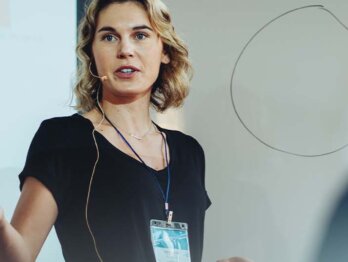Talent management scenarios for Slovenia’s public administration

Description
This case contributes to exploration of the future of talent management in public administration in Slovenia. It supports the Slovenian Ministry of Public Administration’s efforts to better understand the nature, impact, and challenges associated with the changing nature of work and an ageing population. The work accompanies and complements the OECD paper “Slovenia: ageing and talent management in the public administration”, which offers detailed analysis of the practice of talent management and its significance for an ageing workforce.
By building and analysing alternative future scenarios, the project shows how strategic foresight can help frame complex and uncertain problems affecting talent demand and supply in public administration. It demonstrates how the insights emerging from scenario analysis can be used for meaningful and impactful action through innovation. Additionally, the resulting report provides a source of knowledge to anyone seeking to better understand how this strategic foresight approach was implemented in Slovenia, and how it might be replicated elsewhere too.
Objectives and impacts
The main intended contribution of the study was to help the Slovenian ministry to better grasp and situate the megatrend of ageing within a broader set of future developments of potential surprise and significance for workforce planning in public administration. It also sought to inspire and generate initiatives that were novel to the context, value-shifting, and implemented with a view to better preparing for potential future disruptions—a process known as anticipatory innovation. Furthermore there was a component of social capital, as the project took place in the context of efforts to bridge silos within the Slovenian government, as well as Slovenia’s presidency of the EU Council and hosting of the European Public Administration Netowork (EUPAN).
Design
The project was designed and delivered by the OECD Observatory of Public Sector Innovation, in support of the Slovenian Ministry of Public Administration. It took place over the course of approximately six months, including six workshops with Slovenian officials and experts, two workshops with OECD experts, and cross-validation with the accompanying report on ageing and talent management produced in tandem by the OECD.
At every stage, the project undertook extensive dialogue with experts from the Slovenian administration, as well as other key stakeholders from the private sector and civil society, experts in human resources, and OECD subject matter experts.
The stages of production were as follows:
- Exploring the strategic environment: this phase consisted of mapping the actors, trends, signals, and developments of current and potential future significance for talent management in public administration and its success.
- Potential changes of surprise and significance: the second phase sought to imagine what potential disruptions could occur in the contextual environment. Ideas generated included a labour market shift where people would work their whole lives; Slovenia as a destination of choice for people seeking greater well-being; artificial intelligence taking over human-made decisions; and new breakthroughs in collective bargaining.
- Draft scenarios and expert validation: combining the ingredients developed in the prior stage, a set of four draft scenarios was developed in consultation with OECD subject matter experts. The four draft scenarios were presented to the Slovenian participants from the first two stages for feedback. The use of personas to illustrate the scenarios greatly enhanced their relatability for workshop participants.
- What the scenarios mean for the world (‘upframing’); and what the scenarios mean for talent management in Slovenian public administration (‘downframing’): discussions of the scenarios looked at ways to make the most of diverse ways of thinking, ways to combine efficiency and job security, and ways to closely monitor the role and influence of AI in decision-making, among others. The result of this stage was that participants already began to see new possibilities for innovative talent management initiatives that emerged from the scenarios.
- Prototyping experiments and innovations: the final stage of the process involved envisaging innovative approaches to improve talent management in light of the future knowledge generated. These took the form of a pitch outlining what the initiative was, what purpose and value it could serve, and how it would be implemented.
A summary report of these stages was published in October 2021, and launched at the Government Beyond Recovery event. EUPAN held a discussion of some of the highlights of the report that same month, and plans to hold a further dialogue at the director level in December 2021. Implementation of the experiments and innovations will be the responsibility of the Slovenian Ministry of Public Administration.
Impacts
The most visible and direct impact of the intervention would be for the ministry to implement the experiments and innovations in the report; at the time of writing it is too early to assess this impact. Nonetheless, some beneficial impacts have already occurred. The project successfully contextualised ageing as part of a larger system within which workforce planning in public administration must operate. It highlighted issues that were previously underappreciated. It fostered dialogue between stakeholders and officials around issues that would otherwise not have been considered until much later, if ever. And it served to demonstrate that the process of exploring something as inherently abstract as the future can still yield concrete proposals for action.
Reflections and evaluation
Follow-up work will focus on the practical aspects of implementing the experiments and innovations, since these are the primary intended impact. Further evaluation could consider the extent to which the anticipatory innovation capacity and other ancillary benefits generated in the process have been taken forward.
Further information
Dive into the scenarios report and the accompanying report on ageing and talent management.



